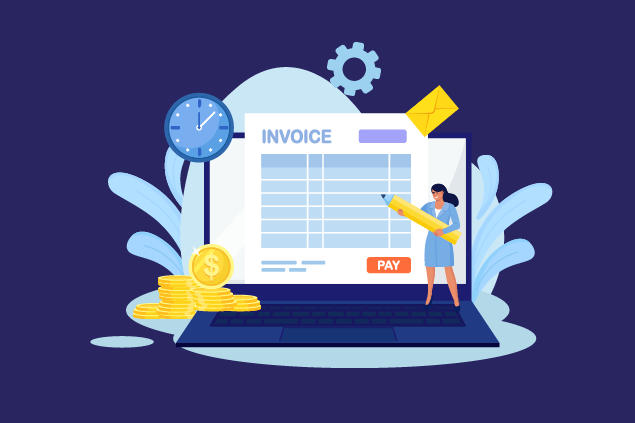The way consumers pay for things has been changing for some time now.
Surveys note that more than 80% of people now prefer to pay with a credit card over cash and 70% report greater satisfaction with businesses that offer multiple methods for paying their bills.
Law firms, however, have been slow to adapt and still offer online payment and payment by card at a much lower rate than other industries.
By offering the option to pay conveniently online, you can make the legal process more client-friendly and establish your firm as one that keeps up with the latest innovations and legal software tools.
How modern payment processing benefits law firms
Accepting credit cards and offering the option to pay online can benefit your clients in a number of ways:
1. Attracting clients
The more payment options you offer, the easier it is to sign and retain new clients. Prospective clients are more likely to choose to work with a firm that offers their preferred method of payment.
2. Building a strong client-attorney relationship
Shifting to online billing technology will win more referrals and increase repeat business. Streamlined and efficient processes not only make things easier for your client but also show an extra level of professionalism.
3. Sending payment confirmations
When a client makes an electronic payment, both you and the client have immediate confirmation that the payment went through. Credit card payments can also present less administrative hassle than payment by check.
4. Getting paid faster
The convenience of paying by card means that many of your clients will pay you more quickly than they might when paying by check. In fact, one survey found that law firms who accept credit card payments collected their payments 39% faster on average.
Concerns about electronic payments
While credit card payments have become the norm in many other industries, law firms have been slow to follow suit. Historically, they’ve named three reasons for prioritizing checks and cash over cards: compliance, credit card payment fees, and professional propriety.
Compliance concerns
Some attorneys have worried that accepting credit card payments could put them at risk of noncompliance with the ABA Model Rules of Professional Conduct, particularly in regards to trust accounting. Under ABA accounting rules, money in a client trust account must be kept separate, and commingling funds can come with severe penalties, even if it was done by accident. For this reason, law firms need to take care that credit card processing fees aren’t removed from client trust accounts.
Thankfully, law firms now have access to payment processing software designed specifically for law firms, which can help you prevent the possibility of processing fees being drawn from a trust account.
Credit card payment fees
In the past, lawyers have been resistant to electronic payments because of the fees charged by the bank, credit card companies, and the processing company. Given the price tag that comes with legal services, this concern is understandable.
But the improved client experience, faster payments, and ease of processing that comes with accepting credit cards can often outweigh the cost of processing fees.
In addition, many legal payment processors offer a flat processing fee rate—this rate is often lower than what is charged for many credit cards and offers a consistent, affordable processing fee for all processed payments.
Another option that is increasingly available for law firms is surcharging. Surcharging allows firms to pass on the credit card processing fees to clients in exchange for the convenience and flexibility that credit card payments allow.
However, surcharging is not legal in every U.S. state, and the availability of surcharging will depend on your firm’s location.
Concerns about professionalism
Compliance and fee-related concerns aren’t the only reason clients have resisted online payments.
Law firm culture also plays a role. Law firms have historically been slow to adopt new technology, and credit card payments are no exception—traditionally, many lawyers have seen credit card payments as unprofessional.
But client expectation is slowly outweighing tradition here. Clients overwhelmingly expect the option of paying for services with an electronic payment like a credit card, and law firms looking to offer the best possible experience for their clients will have to adapt to a new set of client expectations.
Optimizing billing with legal payment processing software
Fortunately, law firms now have access to legal payment processing software that ensures payments are properly separated, keeps client information secure, and allows clients to make payments quickly and reliably from nearly any device.
Streamlining budgets and workflows Platforms like TimeSolvPay are designed to help firms more easily track, record, and allocate payments, as well as securely store payment information for automated recurring payments.
By using online the right legal billing and payment processing software, firms can streamline their collections process from invoicing through to recording and allocating completed payments.
Get paid faster
Sending invoices through the mail and waiting on checks to clear isn’t the most streamlined way to get paid. Law firms have to print invoices, mail them, and then wait on the client’s payment to arrive—if it even does.
By contrast, online payments can be coordinated with just a few clicks. The results?
- Faster payments from clients
- Better tracking and insight into client payment history
- More convenient payment scheduling
Safeguarding security
Law firms have a duty to protect their clients’ financial data, especially as it relates to the confidential matters of their cases. A reputable legal payment processor will process client payments through a secure client portal, keeping their information safe throughout the process.
TimeSolvPay, for example, has several built-in security levels and a Payment Card Industry (PCI) Level 1 Service Provider certification.
Need help implementing online credit card processing?
If your law firm is ready to start accepting cards or needs help implementing online payment processing, we can help.
TimeSolv offers a number of software solutions designed to help law firms optimize their billing and collections. With TimeSolvePay, your firm can effortlessly and compliantly process online payments by card or ACH, without monthly fees or hidden costs.
For more information, contact us today or sign up for a free trial.
















